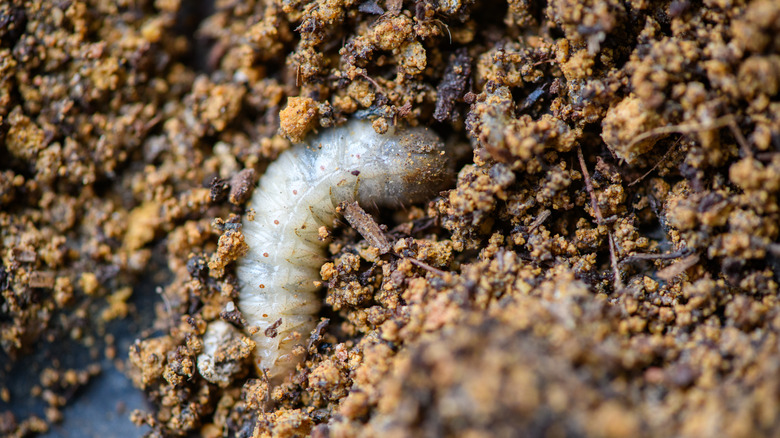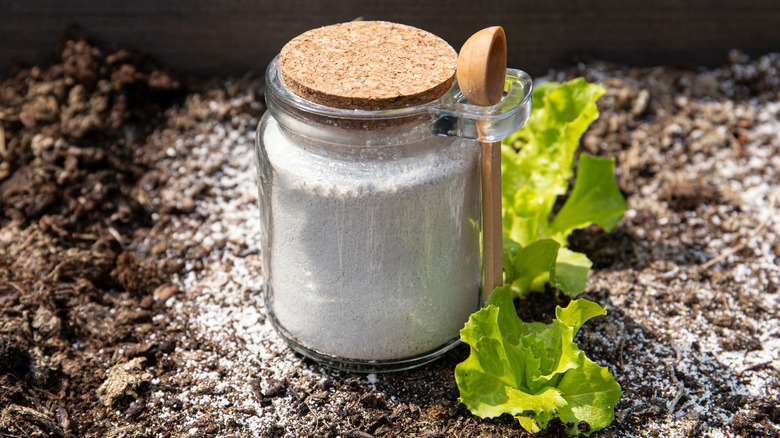Are Grub Worms Ruining Your Yard? There's A Simple Solution (But You Might Not Love It)
We may receive a commission on purchases made from links.
Grub worms can wreak absolute havoc on your lawn or outdoor plants–which means that keeping their population to a minimum is a must for most gardeners and homeowners. There are several natural predators of grub worms, such as birds, raccoons, and moles, that will happily target these critters for you. However, one alternative organic pest control solution is more dependable and just as natural: diatomaceous earth may be worth taking a glance at during your next garden store visit.
Diatomaceous earth is essentially fossilized algae but in a microscopic form. When unprocessed, it favors white sediment rocks, but it typically comes in a powdered form, resembling everyday baking powder. This naturally-occurring substance is fairly harmless upon skin contact with humans but can be deadly to many soft-bodied insects, including grub worms.
It's often ground into a powder for easy distribution, and upon contact, diatomaceous earth's super sharp, jagged particles scrape the outer shell of soft-bodied insects, making them physically vulnerable. These outer shells are composed of oil and moisture, and once they're compromised by the silica-laden diatomaceous earth, the insects suffer from dehydration and quickly die.
Why you may not love it as a grub worms solution
The physical makeup of diatomaceous earth makes it a more ideal solution for dry areas, as moisture can lessen its abrasion and cause clumps. Another downside of using this solution is its potentially negative effect on ecological helpers such as bees, earthworms, and ladybugs. Unfortunately, it may have the same dehydrating and deterring effect on these garden-friendly bugs. In short, diatomaceous earth's indiscriminate nature can potentially pose a threat to your garden's ecosystem if used heavily or improperly.
For example, it may be hazardous to earthworms if used too often. Earthworms are soft-bodied and play a crucial role in gardens, as they help to aerate soil, improve drainage, and distribute nutrients. Diatomaceous earth can also be harmful to another prized creature in your garden's ecological structure: the ladybug–and it's often recommended as a natural insect repellent for deterring ladybug colony invasions. However, ladybugs play a vital role in outdoor gardens, as they help to control common plant pests such as aphids.
So, what's another option for those wanting a natural solution to getting rid of grub worms? One product that specifically targets grub worms is St. Gabriel Organics Milky Spore Granular Grub Control, which uses the active ingredient "Bacillus popilliae" and can be applied right in the soil. Other natural solutions you can consider include releasing beneficial nematodes into your garden and using neem oil to banish pesky grubs.

